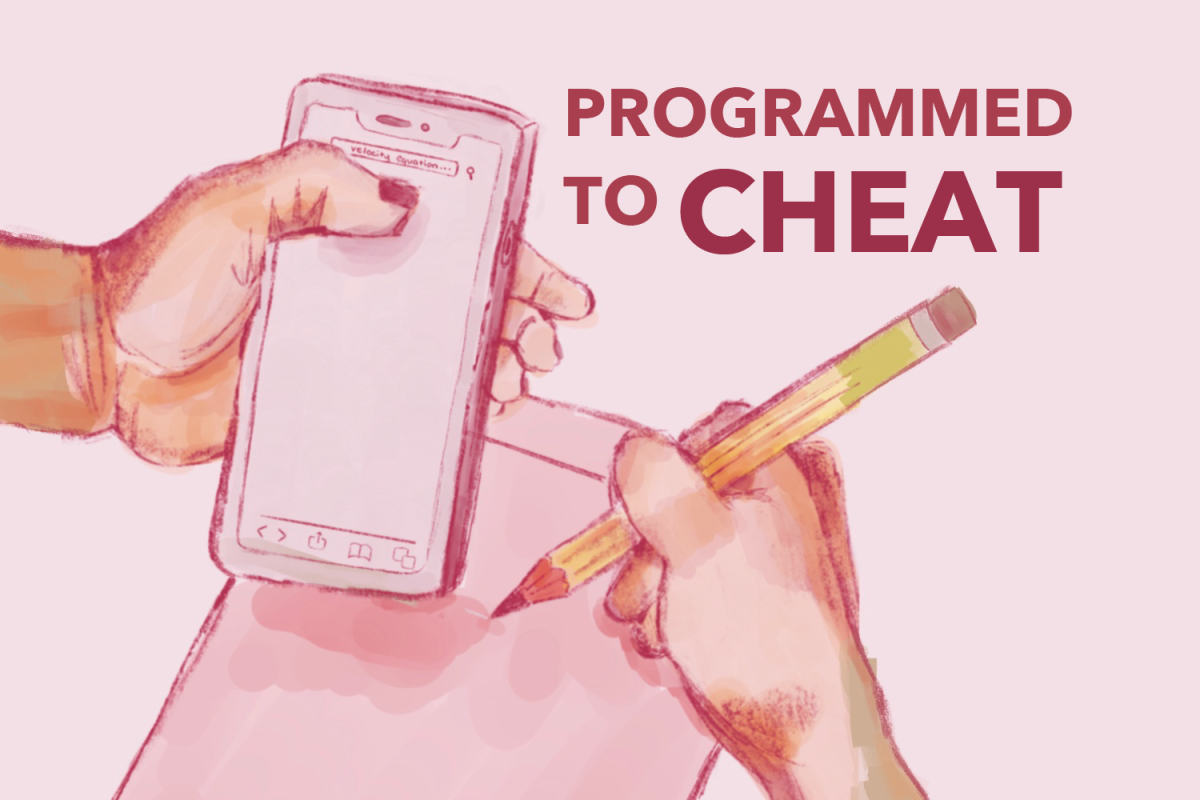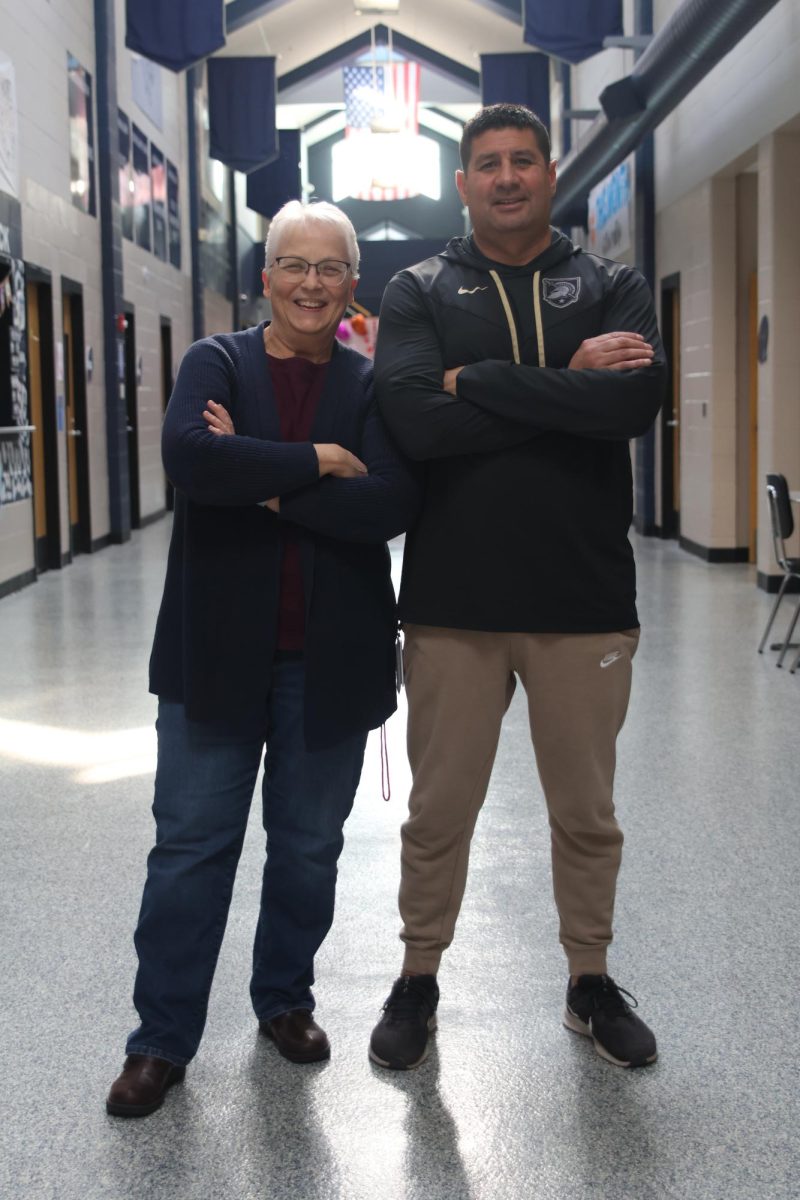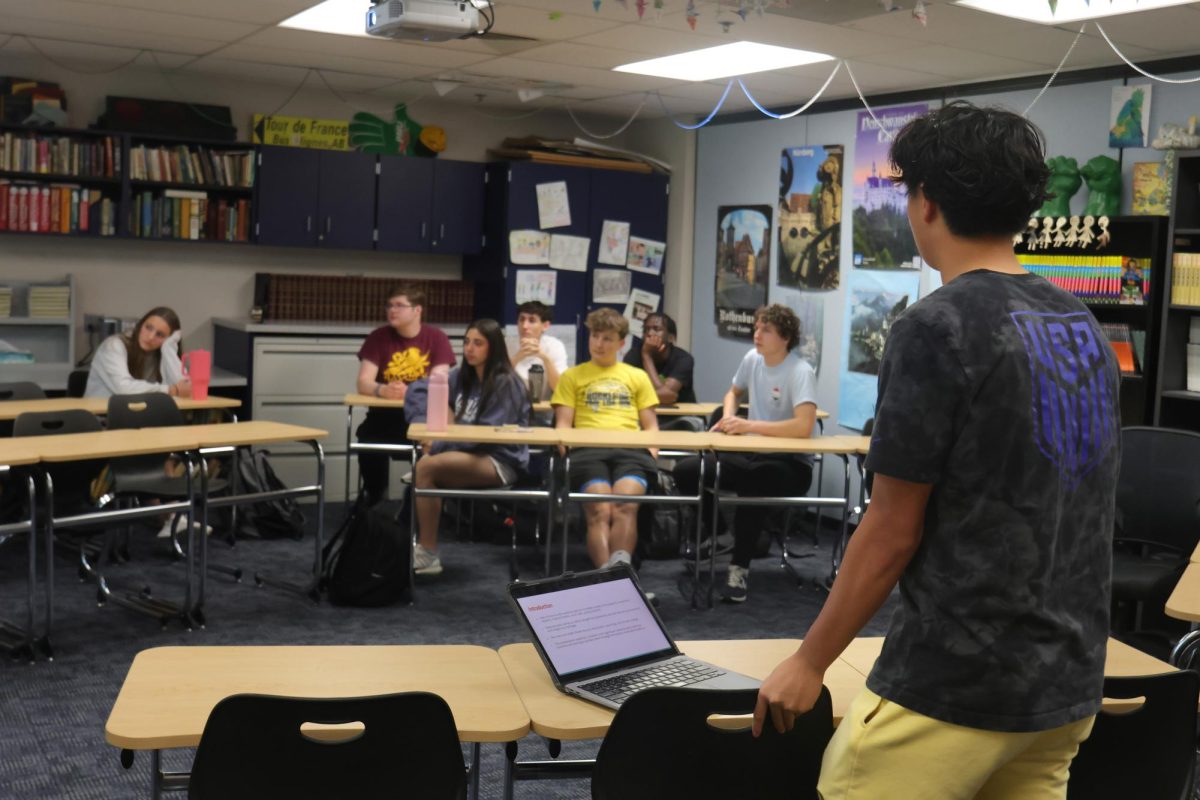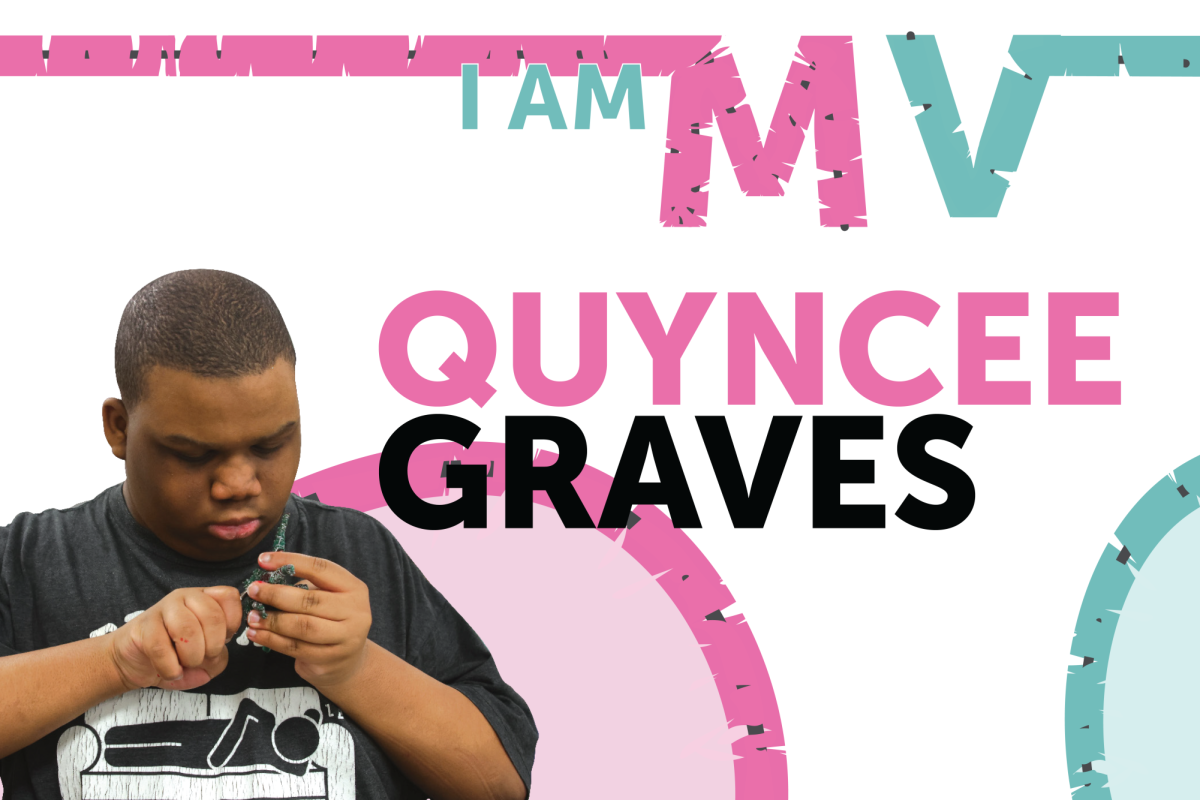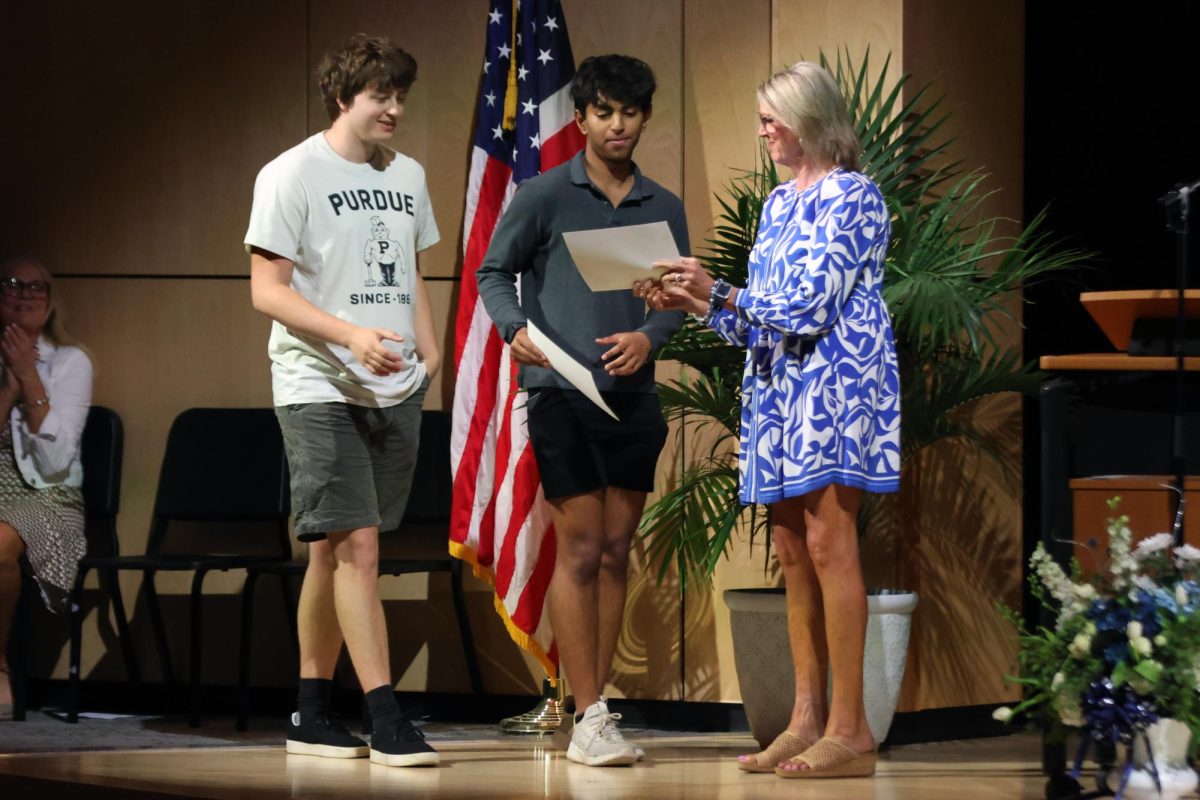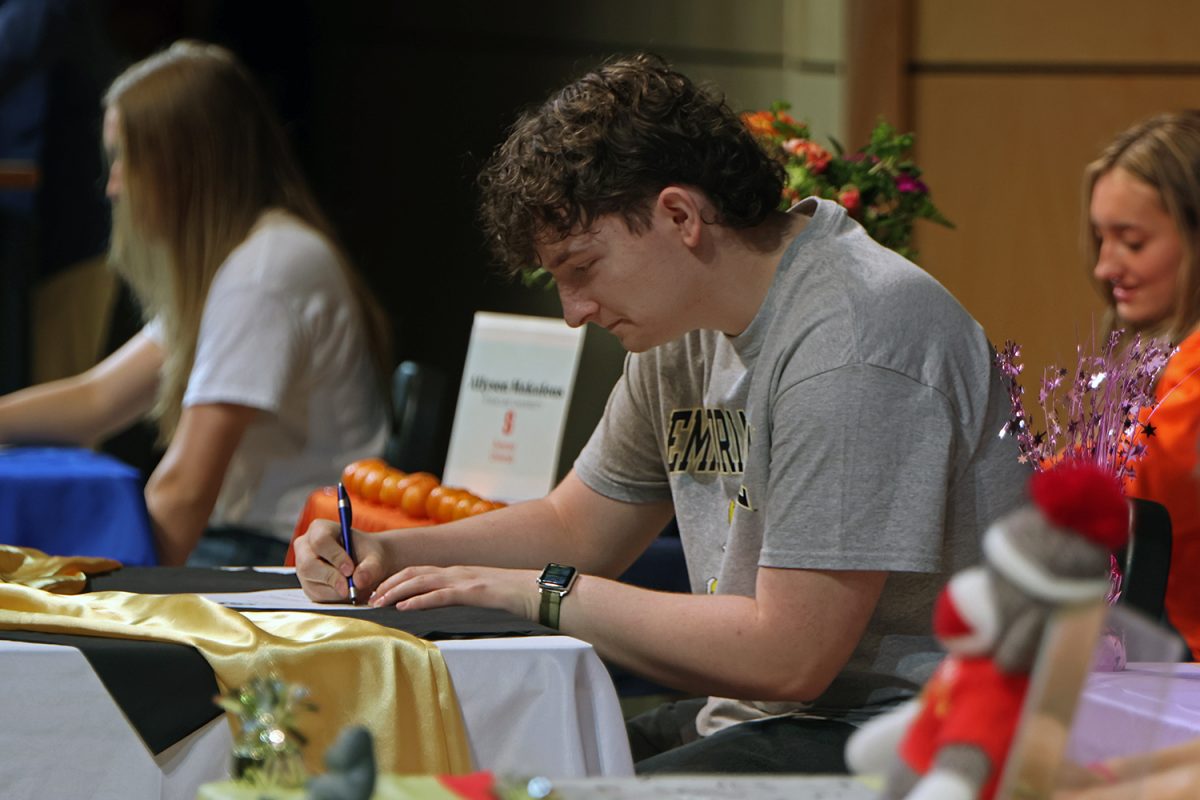Getting with the program
The line between cheating and using resources has become blurred in the digital age as more and more information becomes accessible. Ever since the district went one-to-one with digital devices for all levels of education, students have more access to resources than ever. However, new technology like PhotoMath, ChatGPT and dictionary search have created new ways to cut corners on anything from homework to exams.
In many classes, exams are given on computers for ease of use with programs like Quia or Canvas, but just a click away are all the answers a student could want in a time of desperation. In addition, some students have found ways to collaborate on digital platforms in order to inform their peers of the test content prior to taking it using Quizlet or Google Docs.
While some students may not consider their methods cheating, the close ties of academics and technology in the district have led many to find answers to problems, rather than solving them.
Working hard or hardly working
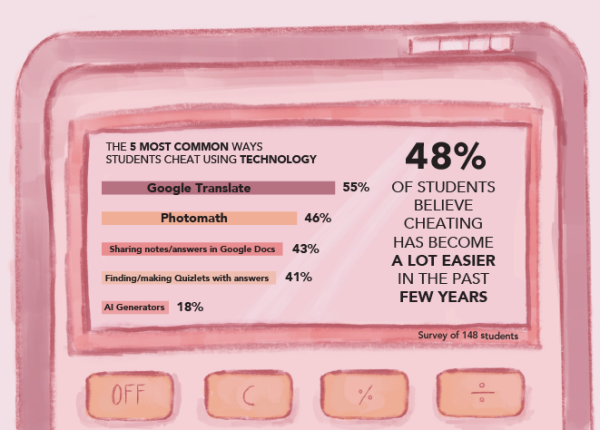 For many students, high school means high workloads. Classes, clubs, sports and jobs leave little time for anything other than constant work. Technology has helped many students cut back on that workload, but in some cases to the detriment of their academic integrity.
For many students, high school means high workloads. Classes, clubs, sports and jobs leave little time for anything other than constant work. Technology has helped many students cut back on that workload, but in some cases to the detriment of their academic integrity.
Sophomore Ian Weatherman has found that with his advanced classes and involvement in clubs, he has to cut some corners on assignments.
“I find that for me personally, [looking up the answers] cuts down [assignment] time a lot,” Weatherman said. “I’m not going to [cheat] just to not do the assignment, first I want to make sure I know I can do it on the test, but I have other homework I need to get to.”
For sophomore Mya Franco, cheating feels like an uncomfortable necessity for passing her AP classes and getting all of her work done on time while being prepared for exams.
“I hate cheating, but sometimes it kind of feels like the only option,” Franco said. “I know that I just have to study really hard, but that also takes away from other things that I could be doing because of the fact that I had to spend so much time on classwork that I didn’t finish because I didn’t have enough time.”
Students like Franco in high level classes often feel pressure to succeed and that can drive them to take desperate measures like cheating on a test.
“I feel like the pressure is if you’re taking a harder class, you should be at that level of performance,” Franco said. “If you feel like you’re not and you don’t know the answer, it feels like there’s a pressure on you to know the answer. If you’re not sure then you go look it up.”
Junior Juliya Laws has found that she sometimes feels like she has to resort to cheating just to get through the class with her GPA unscathed.
“Sometimes I feel like the teacher didn’t teach me enough of the content that was on the test originally,” Laws said. “I felt like I did need to help myself out [on the test] especially because it was all memorization.”
For Franco, studying for tests takes up the majority of her time, especially when clear expectations aren’t always given prior to an exam. Senior Leah Johnson has found that many students cheat on tests because of this.
“Sometimes teachers can be a little cryptic about what the content of the test is gonna be so someone telling you what to study for is helpful,” Johnson said. “I mean, obviously, if you know the answers ahead of time, you can memorize ABCD instead of the actual concepts.”
While some students look up answers on small assignments like homework, even more look up answers on a test. According to Johnson, the ease with which students can do so can be too tempting to resist.
“I think technology probably increased [cheating] just because it’s so easy and therefore, it’s so tempting when you’re doing an online assignment to just open up a new tab during your test and Google it,” Weatherman said. “That’s how every other aspect of our life works. If you don’t know something, then you Google it.”
Cheating the system

There are plenty of reasons that students cheat on assignments, but even more numerous are the ways they have found to
engineer their success.
One of the most obvious ways that students have accessed answers during a test is through new Google tabs. According to
Weatherman, tabs loaded prior to taking the exam often contain answers to questions beforehand.
“I have seen more than half the people in the class on a separate tab during a test,” Weatherman said. “It was a hard test, but you could tell which people looked at answers in another tab because for one specific class, we have found a Quizlet for every single test that has been made, and so that is helping a lot of people pass the class.”
Senior Brooke Bellehumeur has similar experiences in her classes, seeing computers and phones used during tests.
“If it’s on the computer, it’s pretty easy to just look up answers if they need but I think unless teachers take the phone that I see students using them too,” Bellehumeur said.
According to Johnson, students don’t just use their devices to look up answers during an exam, they also scan the test to send to friends for answers.
“[I see people] just slyly pulling out their phone and under the table and looking at an answer or taking a picture of a question to look at to send to people later,” Johnson said.
Despite the secrecy with which students will peek at their phones or other tabs, many teachers are not unaware that it happens on their tests and assignments. French teacher Denise Smith can tell when students have used AI programs on her assignments.
“I know a lot of times students will automatically plug [sentences] into Google Translate or ChatGPT,” Smith said. “[I can tell] based on the structure or vocabulary. I know [from my own research] there are various ways that [translations] can be set.”
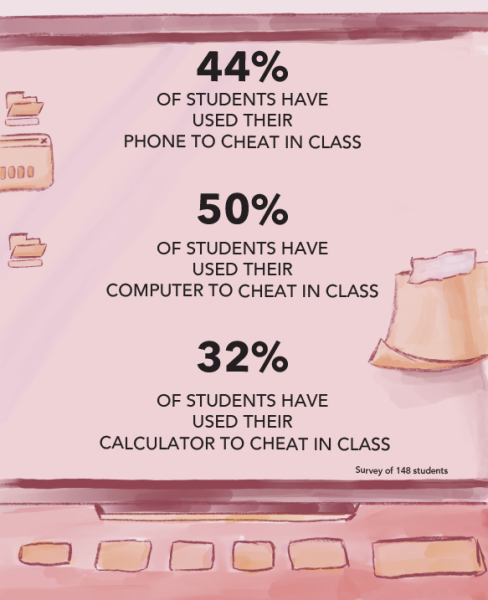 There are teachers that. address this problem by monitoring tests from the back of the class or surveying aisles of desks, but many do not, according to Franco.
There are teachers that. address this problem by monitoring tests from the back of the class or surveying aisles of desks, but many do not, according to Franco.
“Some teachers will walk up and down the aisles or use [programs] that notify you if a student clicks off [the web page] or something, but some teachers just don’t care,” Franco said.
Sometimes the cheating occurs before the test even begins, according to Weatherman, who has engineered a class wide Google Document which contains not only study resources, but information about test content.
“Last I checked I had over 100 people that had the document shared, which isn’t the whole grade but it’s a big majority of it,” Weatherman said. “One thing that you might be able to debate over is after we take a final we don’t share answers, but we talk about ‘here’s something I forgot’, ‘here’s something I need to study’, or ‘I didn’t know this was going to be on the test, so I would study this.’”
The technicalities
The digital age has created a gray area when it comes to using technology as a resource or as an unfair advantage. For Weatherman, the line between acceptable and unacceptable cheating is subjective to the situation that he is in.
“For me, there are two categories,” Weatherman said. “You have the permissible cheating: just trying to get through [the assignment]. You understand how to do it and you just try to do it faster. Then you have what I wouldn’t personally do which is switching over to new browsers during a test or copying down large point assignments from off the web. There’s a divide in those for me, and it’ll be different for every person.”
Similar to Weatherman, junior Shubh Patel believes technology can be valuable to help him complete high-quality assignments with his heavy workload
“I think tech is a useful tool that helps me get through busy work that teachers assign for the sake of having something to do,” Patel said. “Its value is not in quality, but quantity because it can help spark ideas quickly, almost like a friend who can help you brainstorm.”



